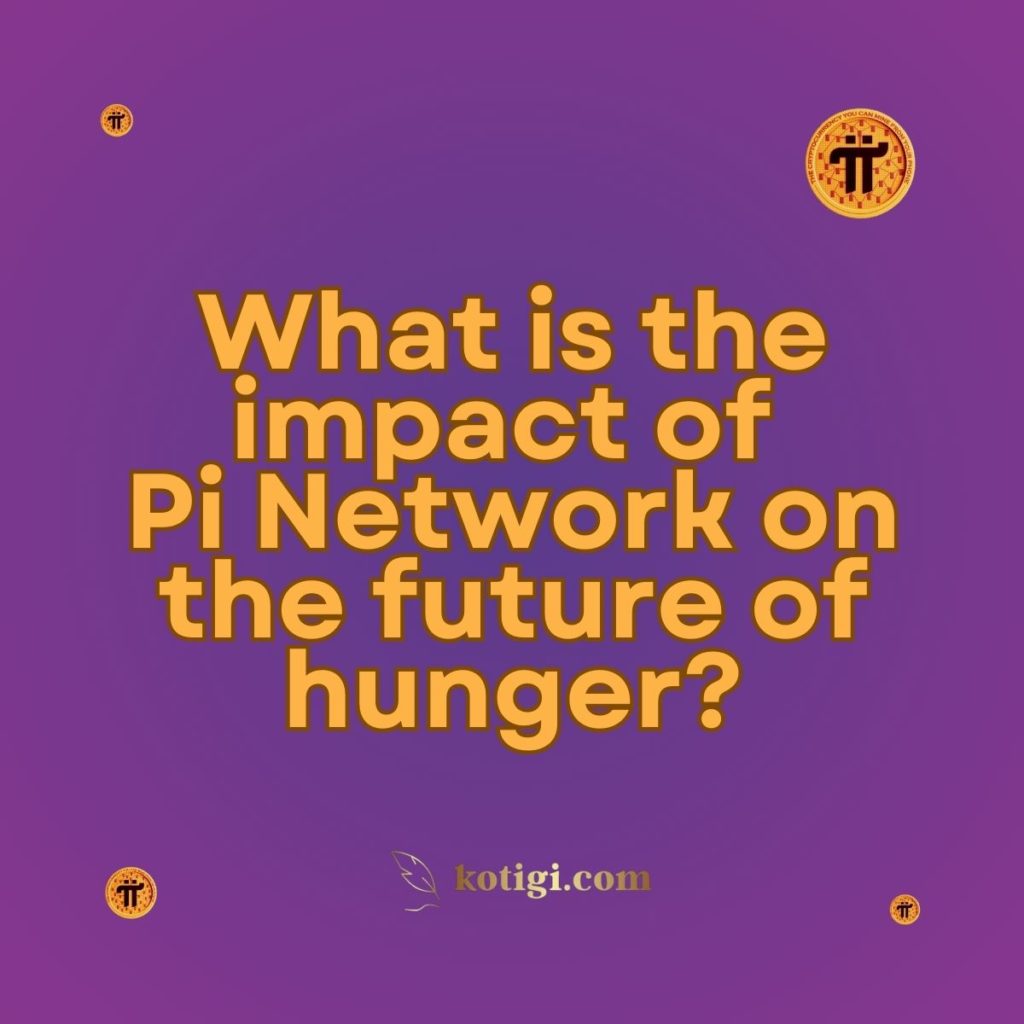
What is the impact of Pi Network on the future of hunger?
The Pi Network has the potential to significantly impact the future of hunger by fostering economic empowerment, improving access to resources, and supporting sustainable agricultural practices. This article explores how the Pi Network could help alleviate hunger through community engagement, innovative solutions, and financial inclusion.
Introduction
Hunger remains one of the most pressing global challenges, affecting millions of individuals and families worldwide. It is a complex issue influenced by various factors, including poverty, lack of access to resources, and inadequate agricultural practices. In the digital age, emerging technologies like blockchain and digital currencies offer innovative solutions to address food insecurity. The Pi Network, a decentralized digital currency platform, has the potential to impact hunger alleviation efforts positively by fostering economic empowerment, enhancing access to resources, and promoting sustainable practices. This article examines the various ways the Pi Network can contribute to reducing hunger, highlighting its role in community engagement, resource accessibility, and innovative solutions.
Fostering Economic Empowerment
Economic empowerment is a critical component in addressing hunger, and the Pi Network can facilitate this in several ways.
Providing Access to Financial Resources
The Pi Network enables individuals, particularly those in underserved regions, to participate in the digital economy. By allowing users to mine Pi coins using their smartphones, the network provides a means for individuals to acquire digital assets without needing traditional banking services. This accessibility empowers users to engage in financial transactions, save, and invest in food-related initiatives, ultimately helping to alleviate hunger.
Encouraging Micro-Entrepreneurship
The Pi Network empowers micro-entrepreneurs by providing them with tools and resources to establish and grow small businesses. For instance, local farmers and food producers can use Pi as a medium of exchange to sell their products directly to consumers. This access not only allows them to earn a sustainable income but also contributes to local food availability, thereby addressing hunger in their communities.
Enhancing Economic Resilience
By promoting the use of Pi in local economies, the network helps strengthen economic resilience against food shortages. When individuals and businesses within a community can transact in a decentralized currency, it reduces dependency on traditional financial systems and mitigates the impact of economic shocks. This resilience is vital for ensuring consistent access to food.
Supporting Sustainable Agricultural Practices
The Pi Network can also contribute to reducing hunger by supporting sustainable agricultural practices.
Funding Agricultural Initiatives
Through its decentralized platform, the Pi Network can facilitate crowdfunding for agricultural projects aimed at increasing food production. Users can pool their resources to invest in initiatives such as community gardens, organic farming, and sustainable farming technologies. This collective action can lead to enhanced food security in communities facing hunger.
Promoting Innovative Agricultural Solutions
The network can encourage the development and adoption of innovative agricultural technologies that improve food production and distribution. By connecting farmers with resources and information, the Pi Network can help them implement practices that increase yields, reduce waste, and enhance the overall efficiency of food systems.
Connecting Farmers with Consumers
The Pi Network can facilitate direct connections between farmers and consumers, allowing for more efficient distribution of food products. By enabling local farmers to sell directly to consumers, the network can reduce reliance on intermediaries, lower food costs, and increase access to fresh produce for individuals experiencing hunger.
Enhancing Community Engagement
Community engagement is essential for addressing hunger, and the Pi Network can foster this in meaningful ways.
Building Local Food Networks
The Pi Network encourages the creation of local food networks that connect producers, consumers, and community members. By facilitating communication and collaboration, these networks can enhance food distribution and ensure that surplus food is redirected to those in need. This collaborative approach can effectively combat food waste while addressing hunger in the community.
Promoting Food Education and Awareness
The Pi Network can serve as a platform for raising awareness about hunger issues and promoting food education. By providing access to information on nutrition, sustainable practices, and local food resources, the network empowers individuals to make informed choices about food production and consumption. This education is vital for fostering a culture of sustainability and reducing hunger.
Facilitating Volunteer Initiatives
The Pi Network can facilitate volunteer initiatives aimed at combating hunger, such as food drives and community meals. By connecting users with local organizations and projects, the network encourages collective action and community involvement in addressing food insecurity. This sense of community solidarity is crucial for driving meaningful change.
Leveraging Technology for Food Security
The Pi Network’s use of blockchain technology can also play a significant role in enhancing food security.
Improving Transparency in Food Supply Chains
The blockchain technology underlying the Pi Network allows for transparent tracking of transactions and food supply chains. This transparency can help ensure that resources are distributed fairly and efficiently, reducing opportunities for corruption and mismanagement. By fostering accountability in food systems, the network can contribute to enhanced food security and reduced hunger.
Enabling Efficient Resource Allocation
The Pi Network can help facilitate the efficient allocation of resources needed for food production and distribution. By connecting stakeholders, including farmers, distributors, and consumers, the network can streamline supply chains and reduce food waste. This efficiency is critical for ensuring that food reaches those who need it most.
Supporting Research and Development
The Pi Network can also support research and development initiatives aimed at addressing hunger-related challenges. By funding projects focused on agricultural innovation, food security, and sustainable practices, the network can contribute to the development of effective solutions that reduce hunger and improve food availability.
Conclusion
The Pi Network has the potential to significantly impact the future of hunger by fostering economic empowerment, supporting sustainable agricultural practices, and enhancing community engagement. By leveraging blockchain technology and encouraging collaboration, the Pi Network can enable individuals and communities to take action against hunger and work towards a more food-secure future. As the world grapples with the challenges of hunger, harnessing the power of innovative technologies like the Pi Network will be essential for driving meaningful change and promoting global food security.
Key Takeaways
- Fostering Economic Empowerment: The Pi Network provides access to financial resources, encouraging micro-entrepreneurship and enhancing economic resilience against food shortages.
- Supporting Sustainable Agriculture: The network facilitates funding for agricultural initiatives and promotes innovative farming practices that increase food production and distribution.
- Enhancing Community Engagement: The Pi Network builds local food networks, promotes food education, and facilitates volunteer initiatives aimed at addressing hunger.
- Leveraging Technology: Blockchain technology improves transparency in food supply chains and enables efficient resource allocation, enhancing food security.
- Driving Meaningful Change: The Pi Network’s innovative approach can contribute significantly to reducing hunger and promoting global food security through collaboration and community empowerment.





